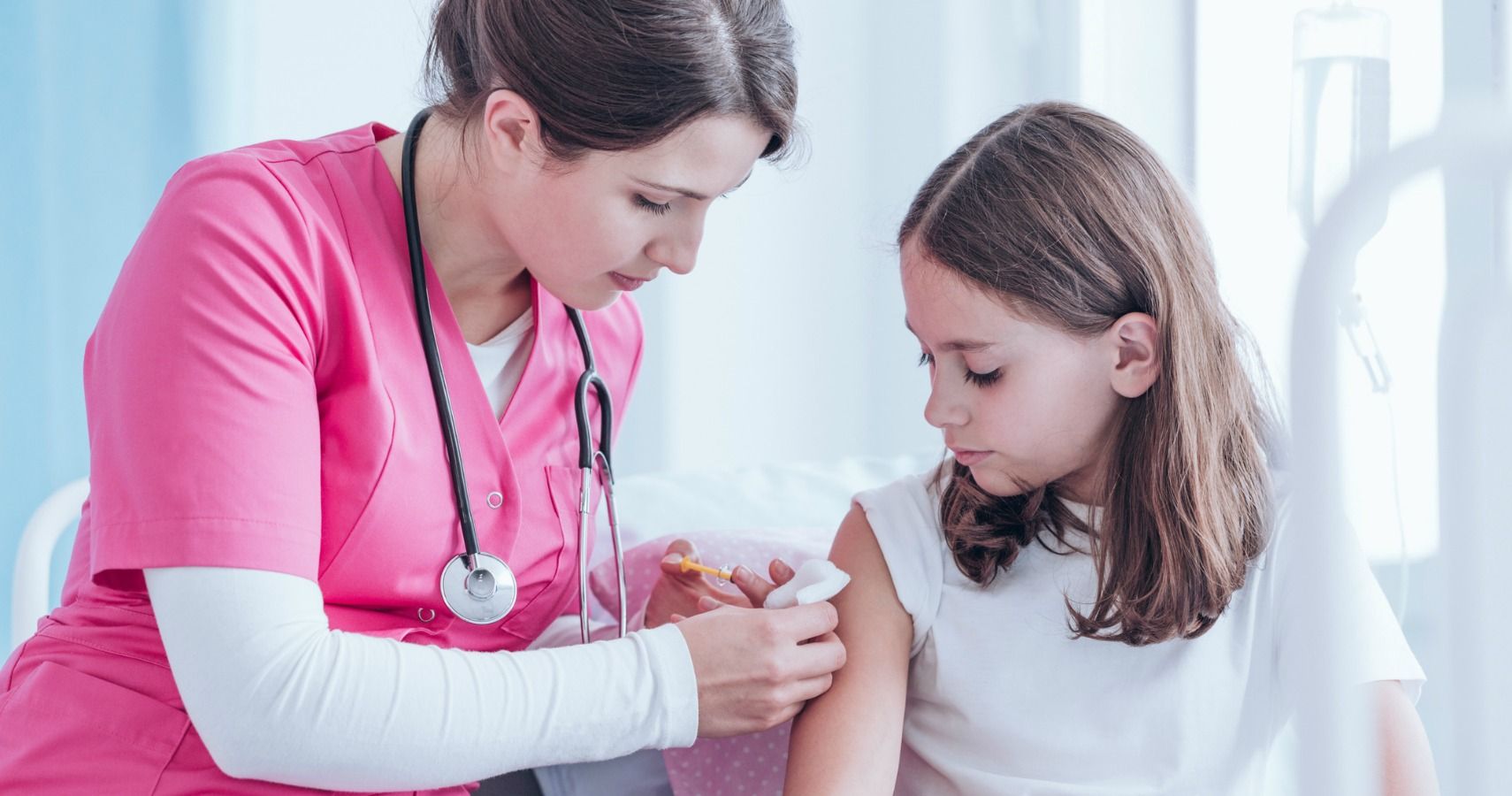Vaccines are one of the most amazing medical advancements in history, saving countless lives and eradicating dangerous and deadly diseases that had previously ravaged communities around the globe. But you know the saying, one bad apple spoils the bunch? Ever since Andrew Wakefield published his research linking vaccines to autism, parents have been turning away from these life-saving vaccines, believing that immunizing their babies and kids puts them at risk (it doesn't).
Despite Wakefield's research being thoroughly debunked and him being more or less ostracized from the medical community, people continue to buy into the idea that vaccines are dangerous (they're not). There are those parents who forgo vaccines entirely, and there are those who choose to delay some vaccines, thinking it provides some benefit to their children. But when it comes to vaccines like the HPV vaccine, delaying it can have very serious consequences.
Vaccine schedules exist for a reason, and the recommended schedule for the HPV vaccine is of particular importance. HPV is the most common sexually transmitted disease in the country; nearly all sexually active men and women will get it at some point in their lives. For many people who contract the disease, it will resolve without them ever experiencing symptoms. But for approximately 33,000 people each year, HPV will lead to cancer. About 90% of anal and cervical cancers are believed to be caused by HPV.
The HPV vaccine was incredibly successful in decreasing the number of new HPV cases, Between 2009 and 2012, new diagnoses were down by about 1/3 in 20-24 year olds. Among 14-19 year olds, they dropped by more than half. The average age when women in the US first have sex is just over 17, and the CDC recommends starting the HPV vaccine at around 11 or 12 years of age. If you wait until your daughter is old enough to decide for herself if she wants it, it may be too late. The age at which they are vaccinated is incredibly important, as is how long they delay the vaccine after having intercourse and possibly being exposed to HPV.
As of 2017, 51% of kids between the ages of 13 and 17 had not completed the HPV vaccine schedule, and 34% hadn't even gotten their first dose. A recent study examined the rate of protection compared to vaccination status and the age at which they were vaccinated. People who had completed the course between the ages of 14 and 20 had the best protection, while those who were over 21 when they got their first dose had no significant protection again disease.
This is an actual cancer-prevention vaccine, and people aren't taking advantage of that. It's hard to imagine your kids will one day be sexually active, we know. But the fact is, they will be, and we need to make sure they're as protected as possible.

